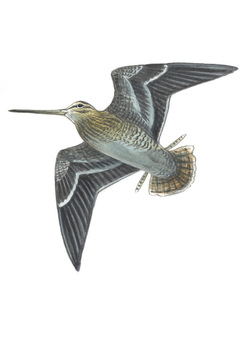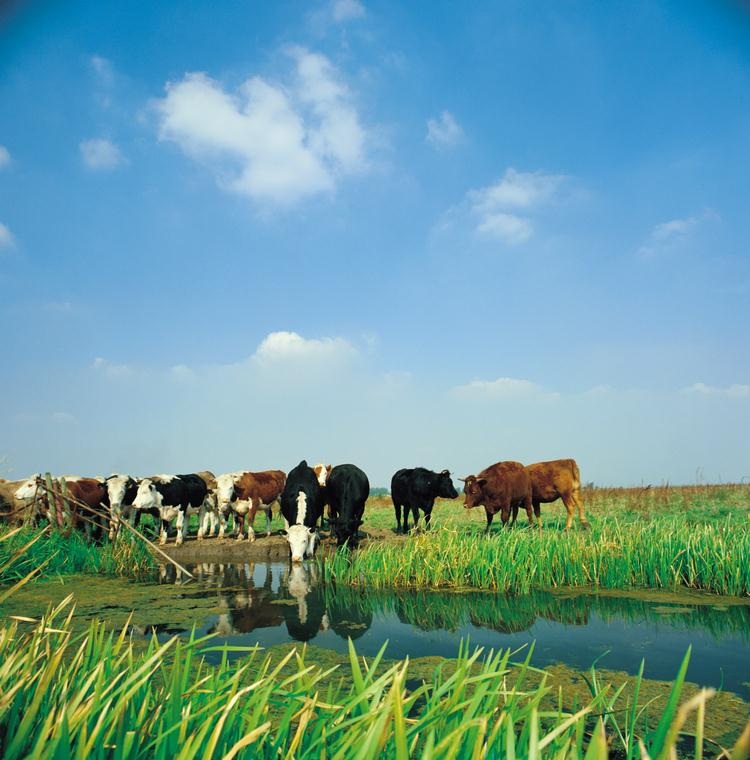The twelfth re:tweet of Christmas
| Twelve snipe a-drumming brings to an end Radio 4's seasonal list of birds that could form an alternative haul of gifts over the twelve days of Christmas. It all started conventionally enough, with a partridge in a pear tree and two turtle doves. French hens, being domestic fowl, were replaced in the BBC list by moorhens. The full list, based on past Tweets of the Day, includes a few surprises. Click the button for the full run-down: At the beginning of the Christmas series I said I'd write something about the snipe, that replaces the twelve drummers drumming in the BBC list. |
| | If I had to choose one childhood experience of nature that was to set the tone for the decades to come it would be this one. It was the start of a new relationship with Fenland, an area I already knew well as the place where my father grew up, and where we would visit a couple of times a year. Click the button for the full essay, called Sky, which is about my various visits to the Ouse Washes over the years. Below that are some extracts, beginning with a 100 year-old diary entry from an earlier visitor to that very place. |
Sky (extracts)
“The air was very pure and the sky was a faded blue with shining white clouds arranged like flights of angels. Towards evening, when the sun began to set the clear turquoise of the sky was beyond all imagined beauty.” Diary of Dr. Katherine Heanley, Sept. 27th 1914, Manea
Here it is the sky that governs the mood of the ground beneath, and calibrates your sense of scale. You might stand under a bright cumulus-laden sky, and it feels as though you are watching yourself from a great distance, standing at the horizon, The Ship of the Fens at your shoulder. Under a slate sky, in a spotlight, ringed by the flat horizon, you are at the anonymous centre of all things.
Into this sky I watched a strange bird rise, only to plummet back into the field with a sound like a balsa-wood plane.
Out of this sky, into this same field, a German plane fell one day. It was May 1941. My father heard about it as he was riding home from school, and by the time he’d pedalled to Welney anything removable had been taken by the local boys. Almost thirty years later, all traces were long gone; but across a dull, smeared sky this strange balsa-bird arc’d over us both. We had gone into the field to find lapwing nests; not, as my father would have done at my age, to harvest eggs, but just to look.
Neither my father nor I knew straight away what this bird was. I had never seen such a disproportionate beak before, and the sound it made was the strangest I had encountered in all nature. The Observer’s Book suggested woodcock, or maybe snipe, but S. Vere Benson’s descriptions of the calls seemed to rule them both out. In the evening, in my room at The Crown at Outwell, I leafed diligently through the little book. The various sandpipers and shanks didn’t look quite right, and no sound ascribed to them came close to that flat airborne bleat. I checked the snipe again, more thoroughly. This bleating, it turned out, was no cry from within, but a play of wind on tail-feather, a reed-instrument that rose from the reeds to deliver its vibrations across far meadows and wide open sky.
~~~~~~~~~~~~~~~~~~~
On a winter visit, the quiet would drop like a mallard as the sky itself fell drear, the better to reveal lonely lights in distant houses I barely noticed before. Wigeon, siffling and back-biting only minutes earlier would repose themselves; flights of lapwing chose their spot and settled. In the osiers below the bank blackbirds clucked and then didn’t. For a while, a brief fermata, nothing stirred. Then the nocturne, a delicate chorus of small sounds would start to sound from across vast acres. First might be a gentle, nasal skirl from the midst of a small flock of lapwing. From afar, a drake wigeon might siffle or his mate yap. A distant dog, or door-jamb, or other commonplace unnoticed in the light of day, would lend its voice and shorten the span of any silence.
In spring, walking back to Manea under a brighter darkness I would hear none of the wigeon of winter; the lapwings’ squealings would as often as not come from above, in a night-flight illuminated by faint pearl-shimmer on damp grass. And higher still, and farther off, a dive-bombing snipe on a night raid would leave its tail-flaps open, and bleat like a child playing front-gunner, to land unseen while its feather-cry hangs in the clean air.


 RSS Feed
RSS Feed
